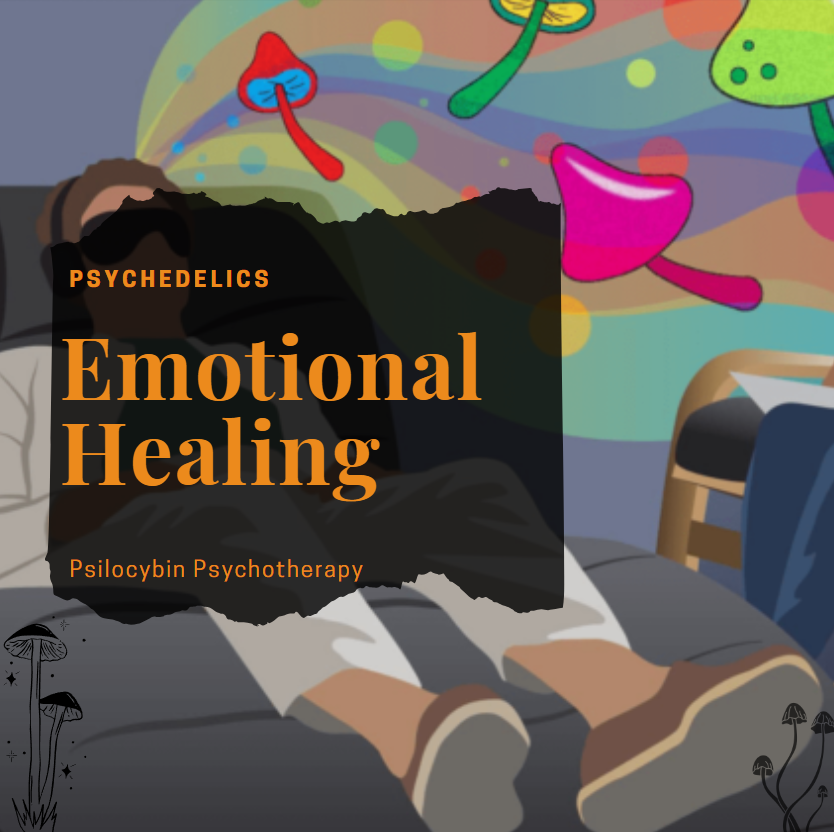
In recent years, the field of psychotherapy has witnessed a profound shift with the emergence of psychedelic-assisted therapy. Research has shown that psilocybin can have profound effects on emotional processing and can facilitate emotional reconnection in individuals. Among these modalities, psilocybin psychotherapy stands out as a promising avenue for promoting emotional healing and well-being.
Psilocybin, the psychoactive compound found in certain species of mushrooms, has long been revered for its profound effects on consciousness and perception. When used in a therapeutic setting under the guidance of trained professionals, it has shown remarkable potential for facilitating deep emotional healing and personal transformation.
So, what exactly is psilocybin psychotherapy, and how does it contribute to emotional healing?
Unlike traditional talk therapy, which primarily relies on verbal communication, psilocybin psychotherapy engages the individual on a profound emotional and spiritual level, allowing them to access deeply buried emotions, memories, and insights.
Many people report that psilocybin experiences allow them to access deeply buried emotions and memories, which can lead to emotional breakthroughs and healing. This process of emotional reconnection may involve revisiting past traumas, gaining new insights into one’s emotions and behaviors, and developing a greater sense of self-awareness and acceptance.
Research has also shown that psilocybin-assisted therapy can be effective in treating various mental health conditions characterized by emotional dysregulation, such as depression, anxiety, PTSD, and addiction. By promoting emotional reconnection and insight, psilocybin therapy may help individuals break free from negative thought patterns, overcome emotional barriers, and develop healthier coping mechanisms.
One of the key mechanisms through which psilocybin promotes emotional healing is by inducing a state of heightened introspection and self-reflection. Under the influence of psilocybin, individuals often experience a dissolution of ego boundaries, leading to a sense of interconnectedness with themselves, others, and the universe at large. This expanded state of consciousness can provide a fresh perspective on past traumas, unresolved emotions, and ingrained behavioral patterns, allowing individuals to confront and process these issues in a safe and supportive environment.
Moreover, psilocybin has been shown to modulate brain activity in areas associated with emotional processing and regulation. Studies using functional magnetic resonance imaging (fMRI) have demonstrated that psilocybin can promote increased connectivity between brain regions involved in emotional processing, leading to enhanced emotional insight and flexibility.
In addition to its direct effects on emotional processing, psilocybin psychotherapy has been found to promote the formation of new neural connections and pathways in the brain, a process known as neuroplasticity. This neuronal rewiring can help individuals break free from entrenched thought patterns and behaviors, paving the way for profound emotional healing and personal growth.
It’s important to note that psilocybin psychotherapy is not a panacea, and it may not be suitable for everyone. Individuals with a history of psychosis or certain psychiatric conditions may be at greater risk of adverse reactions and should proceed with caution. Furthermore, psilocybin psychotherapy should only be undertaken under the guidance of trained professionals in a controlled clinical setting.
In conclusion, psilocybin psychotherapy holds immense promise as a tool for promoting emotional healing and well-being. By providing a unique window into the inner workings of the mind and facilitating deep introspection and self-reflection, psilocybin can help individuals confront and process unresolved emotions, trauma, and behavioral patterns, leading to profound personal transformation and growth.
